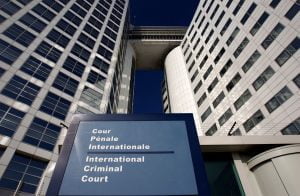First we must admit that the full implications of the British vote to withdraw from the European Union (EU) may take two or even more years to be seen; nor can any person accurately predict fully what these ramifications may be.
As many predicted the short term implications for the British economy took a downward turn with GBP down over 10% and FTSE futures down 8% on the morning of Friday 24th June, forcing the Bank of England to intervene in the markets.
In regard to the EU as a whole it must be a cause for shock. Britain is the EU’s second largest net contributor after Germany in terms of real money paid in. However, these contributions and British withdrawal from the EU are not yet done deals and will continue for some time. Under EU law there is only one mechanism for withdrawal that being Article 50 of the Lisbon Treaty which says withdrawal must be negotiated with a view to future relations. The time allotted to such negotiations in the Treaty is two years, but it may take longer. Until these negotiations are concluded Britain remains a member of the EU, though clearly it will have less influence. Already the first disputes about when Article 50 should be invoked are occurring with many of the leaders of the ‘Brexit’ ironically arguing for a delay in the start of negotiations under Article 50, while EU leaders, Donald Tusk, Jean-Claude Juncker and Martin Schulz have called for negotiations to start “as soon as possible” as “Any delay would unnecessarily prolong uncertainty“. This is merely the first tussle of the coming negotiations, but as David Cameron has announced that he intends to resign before the start of his Party’s Conference in October it seems almost certain that a new British Prime Minister will have to be elected by the ruling Conservative Party before any negotiations under Article 50 can even start. The European leaders under EU law do not have the power to force the Article 50 negotiations to start, but could conceivably “suspend” British membership under Article 7 of the Lisbon Treaty, though this too looks unlikely given Angela Merkel’s comments that “Quite honestly, it should not take ages, that is true, but I would not fight now for a short time frame”. This is where things stand at present.
There is then going to be a period of “uncertainty” and this is bad for the EU and so indirectly for Ukraine. Longer term the EU will also have less money to invest in Ukrainian development in the way it has done so successfully in Poland. There are of course the calls for more national referenda on leaving the EU, not least from Moscow funded Marine Le Penn’s Front National in France. The French elections next year take on a crucial importance and no matter how much M. Hollande and Frau Merkel have played into Muscovite hands with Minsk 1 and 2 they are preferable to the likes of Marine Le Penn for Ukrainian interests. There are of course other right wing groups within EU nations calling for the dismantlement of the EU; the Dutch Party for Freedom, the Danish People’s Party, etc to the Greek Golden Dawn. The prospect of the breakup of the EU as a whole cannot now be discounted and any further ‘contagion’ would represent a serious threat to Ukrainian interests both in terms of the future integration of Ukraine within a wider European system and in terms of a united response to Muscovite aggression with regard to sanctions etc…
Ukraine must recognize these dangers and work with her friends and allies to counter them as well as explore and rehearse alternative frameworks such as the ‘Intermarium‘.
While it must be recognized that ‘Brexit’ has significant and dangerous downsides for Ukrainian interests and security in the longer term these dangers should not be overstated. Britain remains a NATO member and will lead one of the “four robust battalions” that NATO, ahead of the Warsaw summit, has agreed to rotate in Poland and the Baltic nations. The EU is not NATO and barring total British insanity, it’s withdrawal from NATO remains exceedingly unlikely. The British army training troops in Ukraine will continue. Further British military and economic cooperation and support is not off the table despite this vote. Indeed, it is also quite plausible to expect that there may be some upsides for Ukraine as a result of the ‘Brexit’ vote: Firstly some companies will without doubt be looking to relocate from Britain as a result of the vote. Where better than Ukraine, which now has free trade with the EU, a cheap labour force (compared to other EU nations) and a well educated young generation leading the charge for reform? Nor can we yet say how the EU will respond to this decision of the British people; it may be more possible that in future they will look more favourably toward full Ukrainian membership with all the benefits of investment and travel that may bring. In some regards Ukrainian membership of the EU is now more likely provided the reforms are persued with vigour. The Ukrainians currently living and working in Britain, some 30,000 according the Ukrainian Embassy in Britain, may decide now is the time to return to their homeland and we may expect them to be at least well educated and make some contribution to Ukrainian society and the economy.
It is also clear that now the EU must start the process of reforming its institutions and organizational procedures. The lunacy of dictating what the curvature of a bannana or a cucumber can be is not a becoming matter for law makers. More accountability and transparency within the EU, less ‘Presidents’ (of the Commission, the Council of Ministers and the Parliament!) and less money wasting (moving from Brussels to Strasbourg monthly for example) and more responsiveness to Europe’s peoples – including Ukrainians who ARE Europeans – is now a ‘must do’ for the EU. Mistakes have been made and the EU must recognize this and reform itself. This also offers the opportunity for Ukraine to contribute into making a new vision for the European future and contributing to it’s institutions, after all only Ukrainians fight daily for this future.
It is said that where one door closes, another opens. The British vote carries some grave potential dangers for Europe as a whole and in particular for Ukraine in it’s attempts to reform and stop the imperialist Muscovite aggression. Yet it also opens new opportunities for both Europe and Ukraine. By seizing the new opportunities that are coming Ukraine can resist the dangers to itself and Europe. Now, more than ever, Europe needs Ukraine as well as Ukraine needing Europe. Let us reform together our institutions and proceedures, our buraucracies and laws, and so make a vision and future Europe that the British will want to rejoin. Now is the time for reform with vigour, for drawing closer, for rejuvenation of the ‘Europe whole and free’ message. Now while we face dangers the door is open perhaps more than ever toward the bright future that all Europeans so much desire and deserve. Only by moving forward with resolution and in unison can our common dangers be overcome and the brighter future be created.
Richard Drozdowski for EMPR
Image from in-cyprus.com
Tags: brexit intermarium Opinion




















